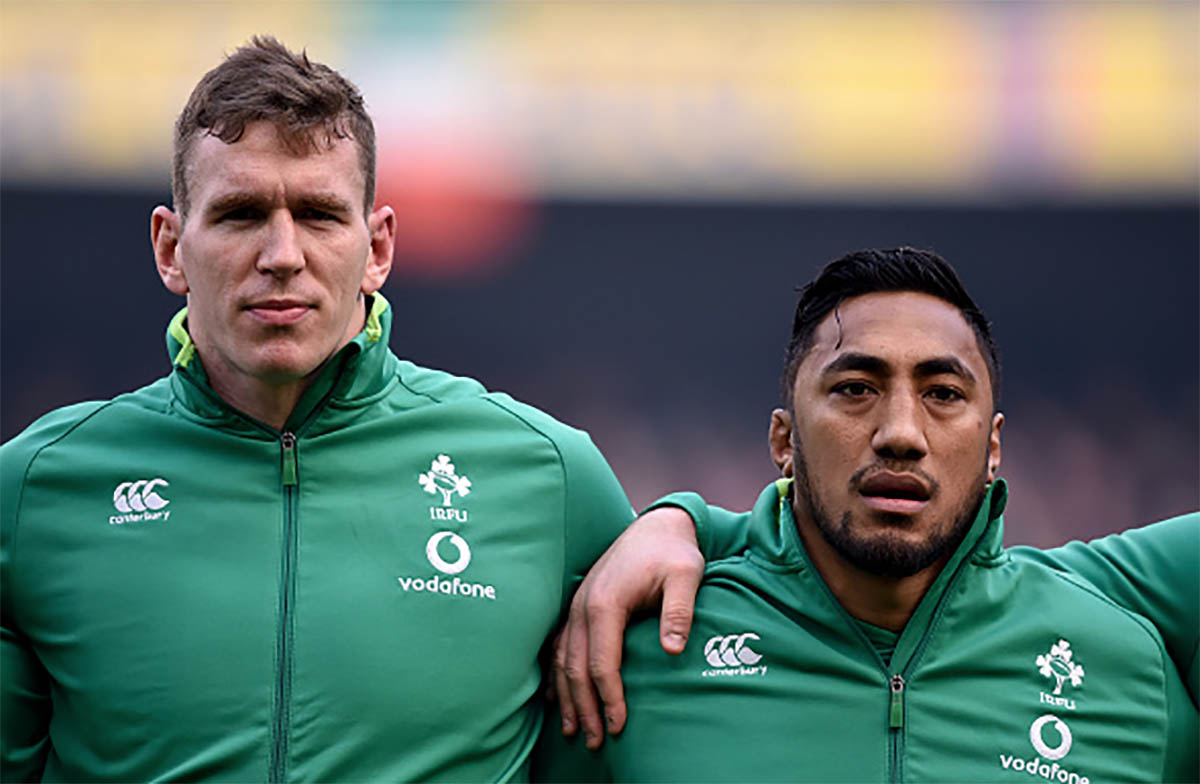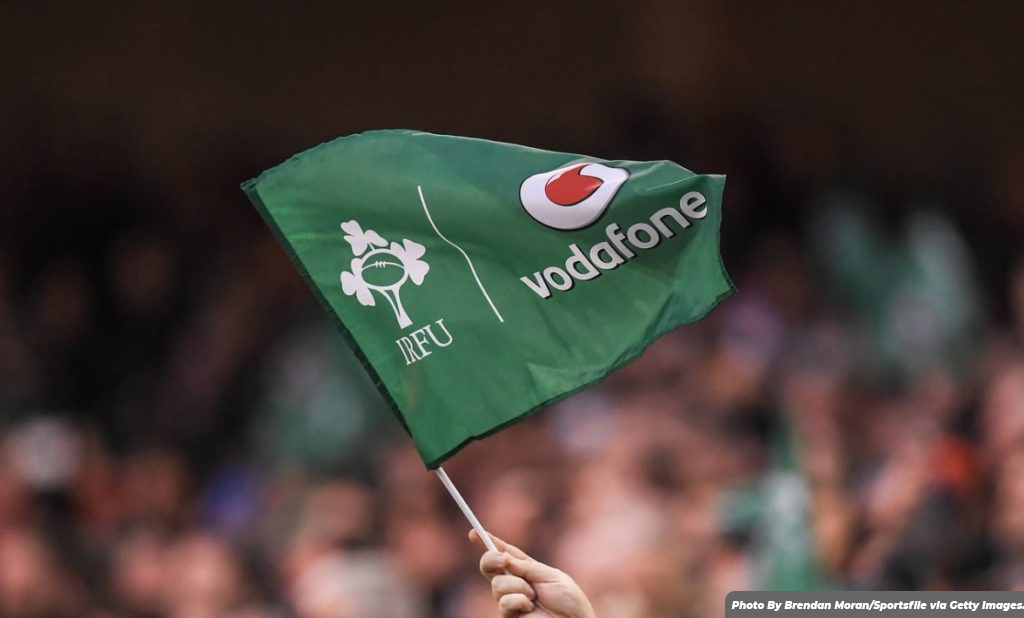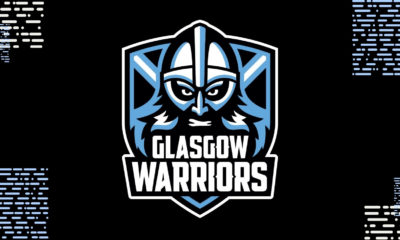6 Nations
Plenty of Changes; Ireland vs Scotland Preview
Both Ireland and Scotland have been forced to make changes to their teams but who will benefit from them?

Ireland have made five changes to the team that lost last weekend as they hope to bounce back against a confident Scottish team in Murrayfield on Saturday.
Joe Schmidt gambled with players last weekend in Ireland’s 32-20 loss to England, but the damage has been much worse than just the result.
Most noticeably he chose to start three natural centres in Bundee Aki, Garry Ringrose, and Robbie Henshaw, who came in at full-back.
It was a bold move however, Ringrose was ruled out earlier in the week due to a tight hamstring and today it was confirmed that Henshaw has picked up a dead leg and will miss this round.
All of which has led Schmidt to pick Munster’s Chris Farrell at 13 to partner Aki. Farrell isn’t a bad option, he played one match for his country last year and picked up the man of the match award and has an unexpected opportunity to prove himself once more.
Elsewhere, the front row has remained the same with Cian Healy and Tadhg Furlong joining captain Rory Best. In the second-row James Ryan is partnered by Quinn Roux, who will win his first 6 Nations start, following Devin Toner’s injury.
At the back of the pack there are two changes with Sean O’Brien getting the nod ahead of Josh Van Der Flier, who was Ireland’s standout performer last time out. He is pushed to the bench.
Jack Conan comes in to replace CJ Stander at No 8, after Stander played 62 minutes with two fractures in his cheek and eye socket against the English.
The pack is completed by Peter O’Mahony.
Conor Murray and Johnny Sexton continue in the half-back positions, while Aki and Farrell are at inside and outside centre as mentioned previously.
In back-three is made up of Jacob Stockdale, Keith Earls, and a fit again Rob Kearney, who takes over at full-back.
The bench remains largely the same as last week and will add a great amount of power when used. With the likes of Sean Cronin, Andrew Porter, Joey Carbery and Jordan Larmour to call upon. Ultan Dillane is the only change.
#GuinnessSixNations
— Irish Rugby (@IrishRugby) February 7, 2019
Here's the @IrishRugby team to play @Scotlandteam on Saturday.#TeamOfUs #ShoulderToShoulder #SCOvIRE pic.twitter.com/LQWUS28tMs
The Scottish team sees four changes to the one that saw off Italy 33-20 last Saturday.
In the front-row Allan Dell and captain Stuart McInally are joined by Simon Berghan, who comes in for the injured WP Nel.
In the second-row, Ben Tollis moves to the bench as Jonny Gray plays alongside Grant Gilchrist.
There is a change in the back-row also, as Josh Struass replaces Sam skinner. Ryan Wilson and Jamie Ritchie are his partners at 6 and 7 respectively.
Greig Laidlaw and Finn Russell begin the game at scrum-half and out-half, while Sam Johnson and Huw Jones remain in the centre.
Sean Maitland has been chosen ahead of last week’s hat-trick hero Blair Kinghorn at 11, with Tommy Seymour and Staurt Hogg making up the starting XV.
There are also four new players on the bench for the hosts as Fraser Brown, Pete Horne and Rob Harley take a sit with the uncapped D’arcy Rae.
BREAKING | Scotland make four changes for this Saturday’s Guinness Six Nations clash with Ireland @BTMurrayfield.
— Scottish Rugby (@Scotlandteam) February 7, 2019
? Berghan and Strauss replace injured Nel and Skinner, Gray & Maitland return from injury for Toolis and Kinghorn who move to the bench.
➡️ https://t.co/y0gRovACwY pic.twitter.com/wob5Ffn4JO
Speaking ahead of the clash Schmidt admitted his excitement at Farrell having a chance to shine.
“It’s a pretty exciting opportunity to give Chris Farrell the chance to play against Scotland. He stepped in only once last year, got man-of-the-match, and he’s a guy that’s coming back to form after the long lay-off that he’s had,” he said.
He also told the press that Ireland have to move on from last weekend’s defeat and grow into the match on Saturday.
“We have to build our way into the game, we can’t be chasing things and trying to get instant results. You’ve got to earn whatever you get up there because they give so little away. (Last week’s defeat) doesn’t change the mentality too much, we just want to take it one game at a time. We’re not going to chase a tournament when we’ve got such a tough task in front of us,” he added.
Scotland head coach Gregor Townsend has warned his team that this will be their biggest challenge in this year’s 6 Nations.
“It’s massive. It’s probably the biggest challenge we’ll face in the Guinness Six Nations, given the way Ireland have been playing in the last few years – they are Grand Slam Champions and the number-two team in the world,” he said.
Scotland currently sit top of the table after round one due to their bonus-point victory over the Italians, but the spotlight will be firmly on last year’s Grand Slam winners, Ireland, to see how they react especially with the injuries to adding to the pressure.
What is certain is that at 14 15 on Saturday there will be two teams going all out for a
6 Nations
Munster Rugby Announce Contract Deals For Murray, Daly & Gleeson

Munster Rugby and the IRFU are pleased to confirm contract extensions for Conor Murray and Jack Daly with Brian Gleeson to be promoted from the Academy to the senior squad next season.
Murray and Daly have signed one-year extensions with Gleeson moving up to the senior squad on a two-year deal.
Gleeson is one of five Academy players moving up to the senior squad next year with Tony Butler, Ethan Coughlan, Mark Donnelly and Edwin Edogbo also signing two-year deals.
Conor Murray is one of the most decorated scrum-halfs in world rugby with 116 Ireland caps and three British & Irish Lions tours to his name.
A former St Munchin’s College student, the Garryowen man won his fifth 6 Nations title with Ireland last month and earned his second league title with Munster last season.
The 34-year-old has made 185 Munster appearances and scored 34 tries for the province to date and was named on World Rugby’s Team of the Decade in 2019.
25-year-old flanker Jack Daly came up through the ranks at Castleisland RFC and made his Munster debut against Zebre in 2020.
Daly joined the Academy in 2018, moved up to the senior squad in 2021 and plays his AIL rugby with Garryowen. A former Ireland U20 international, he made his Champions Cup debut against Toulouse in the quarter-final at the Aviva Stadium in 2022.

Try-scoring number 8 Brian Gleeson leads the charge for the Ireland Under-20s against France ©INPHO/Evan Treacy
20-year-old Gleeson moves up to the senior squad after just one year in the Academy that has seen him score one try in nine senior appearances.
Currently out of action with an ankle injury, he had already made three Champions Cup appearances before turning 20.
The powerful back-row forward was a Grand Slam winner with the Ireland U20s last year. plays his AIL rugby with Garryowen and came up through the ranks at Thurles RFC and Rockwell College.
Images & Content from Irish Rugby & Images © Inpho Photography
6 Nations
Farrell Names Ireland Match Day Squad To Face Scotland In Dublin

Head Coach Andy Farrell has named his Ireland Match Day Squad for Saturday’s Guinness Men’s Six Nations clash against Scotland at Aviva Stadium (Kick-off 4.45pm).
Ireland – currently sitting top of the Six Nations table heading into Super Saturday – can clinch back-to-back Championship titles with victory over Scotland in Dublin.
Farrell has named an unchanged starting XV for the Round 5 clash, as Hugo Keenan, Calvin Nash and James Lowe continue in the Ireland back three. Robbie Henshaw and Bundee Aki are once again selected in midfield, with Jack Crowley and Jamison Gibson-Park the starting half-backs.
Andrew Porter, Dan Sheehan and Tadhg Furlong pack down in the front row, with Joe McCarthy partnering Tadhg Beirne – who is set to win his 50th Test cap for Ireland – in the engine room.
Captain Peter O’Mahony is at blindside flanker, Josh van der Flier is at openside and Caelan Doris completes the starting XV at number eight.
The Ireland Coaching Team have opted for a 5-3 split on the bench, with Rónan Kelleher, Cian Healy, Finlay Bealham, Ryan Baird and Jack Conan providing the reinforcements up front, and Conor Murray, Harry Byrne and the fit-again Garry Ringrose the backline options.

Saturday’s match is live on Virgin Media One and ITV, with live radio coverage available on RTE Radio 1.
Ireland Team & Replacements (v Scotland, Guinness Men’s Six Nations, Saturday, March 16, 4.45pm)
15. Hugo Keenan (UCD/Leinster)(39)
14. Calvin Nash (Young Munster/Munster)(5)
13. Robbie Henshaw (Buccaneers/Leinster)(71)
12. Bundee Aki (Galwegians/Connacht)(55)
11. James Lowe (Leinster)(30)
10. Jack Crowley (Cork Constitution/Munster)(13)
9. Jamison Gibson-Park (Leinster)(34)
1. Andrew Porter (UCD/Leinster)(63)
2. Dan Sheehan (Lansdowne/Leinster)(25)
3. Tadhg Furlong (Clontarf/Leinster)(75)
4. Joe McCarthy (Dublin University/Leinster)(9)
5. Tadhg Beirne (Lansdowne/Munster)(49)
6. Peter O’Mahony (Cork Constitution/Munster)(captain)(104)
7. Josh van der Flier (UCD/Leinster)(61)
8. Caelan Doris (St Mary’s College/Leinster)(40)
Replacements:
16. Rónan Kelleher (Lansdowne/Leinster)(30)
17. Cian Healy (Clontarf/Leinster)(128)
18. Finlay Bealham (Buccaneers/Connacht)(39)
19. Ryan Baird (Dublin University/Leinster)(19)
20. Jack Conan (Old Belvedere/Leinster)(45)
21. Conor Murray (Garryowen/Munster)(115)
22. Harry Byrne (UCD/Leinster)(3)
23. Garry Ringrose (UCD/Leinster)(57).
Images & Content from Irish Rugby & Images © Inpho Photography
6 Nations
Farrell Names Ireland Team To Face England At Twickenham

Head Coach Andy Farrell has named his Ireland Match Day Squad for Saturday’s Guinness Men’s Six Nations clash against England at Twickenham (Kick-off 4.45pm).
Peter O’Mahony captains Ireland for the Round 4 visit to London, with Hugo Keenan returning to the starting XV after recovering from injury.
Keenan joins Calvin Nash and James Lowe in the Ireland back three, with Bundee Aki and Robbie Henshaw continuing their midfield partnership.
Jack Crowley and Jamison Gibson-Park are retained as the half-back pairing.
In the pack, Andrew Porter, Dan Sheehan and Tadhg Furlong are in the front row, with Joe McCarthy and Tadhg Beirne named in the engine room. Captain O’Mahony is at blindside flanker, Josh van der Flier is at openside and Caelan Doris completes the starting XV at number eight.
The Ireland Coaching Team have selected a 6-2 split on the bench, as Ronan Kelleher, Cian Healy, Finlay Bealham, Iain Henderson, Ryan Baird and Jack Conan provide the reinforcements in the pack.
Backs Conor Murray and Ciaran Frawley complete Ireland’s Match Day 23 to face England.
Saturday’s match is live on RTÉ2 and ITV.
Ireland:
15. Hugo Keenan (UCD/Leinster)(38)
14. Calvin Nash (Young Munster/Munster)(4)
13. Robbie Henshaw (Buccaneers/Leinster)(70)
12. Bundee Aki (Galwegians/Connacht)(54)
11. James Lowe (Leinster)(29)
10. Jack Crowley (Cork Constitution/Munster)(12)
9. Jamison Gibson-Park (Leinster)(33)
1. Andrew Porter (UCD/Leinster)(62)
2. Dan Sheehan (Lansdowne/Leinster)(24)
3. Tadhg Furlong (Clontarf/Leinster)(74)
4. Joe McCarthy (Dublin University/Leinster)(8)
5. Tadhg Beirne (Lansdowne/Munster)(48)
6. Peter O’Mahony (Cork Constitution/Munster)(captain)(103)
7. Josh van der Flier (UCD/Leinster)(60)
8. Caelan Doris (St Mary’s College/Leinster)(39)
Replacements:
16. Ronan Kelleher (Lansdowne/Leinster)(29)
17. Cian Healy (Clontarf/Leinster)(127)
18. Finlay Bealham (Buccaneers/Connacht)(38)
19. Iain Henderson (Academy/Ulster)(80)
20. Ryan Baird (Dublin University/Leinster)(18)
21. Jack Conan (Old Belvedere/Leinster)(44)
22. Conor Murray (Garryowen/Munster)(114)
23. Ciaran Frawley (UCD/Leinster)(3)
Images & Content from Irish Rugby & Images © Inpho Photography













